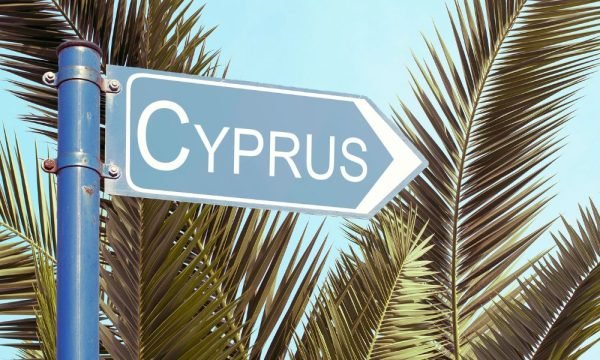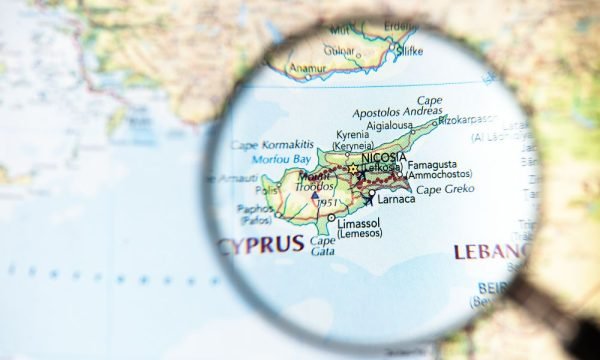



Moving to Cyprus in 2025 offers a unique lifestyle that merges Mediterranean serenity with tangible EU advantages. Renowned for its safety, abundant prospects, and superior infrastructure, Cyprus continues to captivate expats worldwide. With a significant portion of its population being internationals, it fosters a truly cosmopolitan atmosphere, making it easier to settle in.
Residents in Cyprus benefit from a high quality of life, characterized by abundant sunshine, access to high-quality healthcare, and a welcoming society. Cyprus consistently ranks highly in expat satisfaction surveys due to its balanced living standards. Whether you prefer Limassol’s lively promenades or Paphos’s tranquil beaches, options abound for an enriched existence.
The Cypriot economy is robust, with a projected GDP growth of around 3% in 2025, excelling in diversification. Key sectors like fintech, shipping, tourism, and renewables are experiencing significant expansion. Limassol and Nicosia, in particular, stand out as innovation centers, attracting top talent, startups, and investors. For business owners, incentives such as a competitive 12.5% corporate tax rate and seamless EU market access make Cyprus an ideal location for expansion.
Compared to many other EU nations, living costs in Cyprus are reasonable, especially when factoring in the attractive tax perks. While urban areas like Limassol may be pricier, locations such as Larnaca or charming rural villages provide budget-friendly housing without compromising on amenities. Daily expenses for dining, transport, and leisure also cater to diverse budgets.
Ultimately, whether your motivation is career advancement, cultural immersion, or a family-friendly environment, moving to Cyprus in 2025 provides a rewarding foundation for an enhanced life.
Cyprus’s progressive immigration framework in 2025 presents enticing paths for expats to reside and work in this EU nation. Tailored for investors, skilled workers, or digital nomads, Cyprus features visa options aligning with varied goals. Here’s a summary of prominent visa routes for those looking to move to Cyprus.
Cyprus’s Golden Visa program revolutionizes opportunities for investors and professionals, granting permanent residency with EU perks. Aimed at attracting global talent, it provides stability and significant advantages, making it a popular choice for those serious about making a long-term move to Cyprus. Highlights encompass:
For example, Maria, a tech entrepreneur from Brazil, successfully obtained her Golden Visa via property investment. This enabled her and her family to live and work in Cyprus without restrictions, thriving in Limassol’s dynamic scene.
Crafted specifically for remote professionals, Cyprus’s Digital Nomad Visa permits living locally while employed by a company outside Cyprus. Updated in 2025 to meet modern needs, it includes:
Alex, a software developer from the US, utilized this visa to operate from a seaside villa in Paphos, balancing his Canadian clients with the relaxed island lifestyle.
Targeted at business starters, the Entrepreneur Visa supports ventures contributing to Cyprus’s vibrant economy. Benefits include full ownership and attractive tax perks. Criteria often involve:
Securing Cyprus citizenship represents a prestigious achievement, indicating full assimilation into this EU island’s diverse society. Though selective, 2025 updates have broadened avenues for talented expats via investment or contributions. Here’s essential information on criteria, steps, and perks for those aiming for full citizenship after their move to Cyprus.
Cyprus prioritizes applicants demonstrating exceptional value or integration. Primary categories include:
Nominations via government bodies ensure alignment with national standards.
Beyond eligibility, the process demands societal commitment. Core stages for citizenship after your move to Cyprus:
Achieving citizenship unlocks premium benefits:
2025 reforms aim to digitize applications via online portals, potentially reducing wait times. A renewed focus on attracting talent in tech and sustainability also expands eligibility, promoting greater inclusivity for future citizens.
Cyprus’s living expenses remain a significant draw for expats, blending affordability with high EU standards. Urban centers like Limassol offer upscale vibes at manageable costs, particularly enhanced by the attractive tax regime. Rural or smaller towns like Larnaca provide even better value, preserving quality of life and economic access. This section helps you understand the financial aspects of your move to Cyprus.
Limassol and Nicosia, Cyprus’s primary hubs, deliver premium experiences with ample career and social perks, while still accommodating diverse budgets through varied housing and lifestyle options.
These cities excel in convenience: Limassol’s vibrant beaches and Nicosia’s rich history are complemented by efficient public transport and ride-share options, often negating the need for a personal car.
For a thriftier approach to your move to Cyprus, towns like Larnaca or Paphos are well-suited for families or those preferring calm, close-knit communities.
Larnaca’s cultural sites and Paphos’s archaeological gems add distinct charm, with lower costs and a greater focus on nature enhancing overall lifestyle balance.
While costs vary based on individual choices, Cyprus generally provides excellent value for money. A fine dining experience in Limassol might reach €100, while a delicious souvlaki in a village could be just €10. Activities like beach days or scenic hikes are accessible to all budgets, with tax savings often boosting disposable income for savings or leisure.
Cyprus has rapidly evolved into a European frontrunner for commerce and creativity, diversifying its economy from primarily tourism to a multifaceted ecosystem. Supportive governmental policies, robust EU integration, and a skilled workforce collectively propel Cyprus as an attractive gateway for enterprises and a strong reason to move to Cyprus for business opportunities.
Limassol and Nicosia are at the forefront of the entrepreneurial wave. Success stories, particularly within the fintech sector, highlight Cyprus’s nurturing potential. Initiatives such as the Cyprus Startup Visa and a growing network of incubators actively lower barriers for new businesses, offering essential funding and guidance. Programs actively connect innovators with key growth sectors like health and renewable energy, fostering sustainable development.
Cyprus’s economic diversification is fueling rapid expansion in several key sectors:
Cyprus’s pro-business stance is reinforced by numerous incentives:
Selecting the right location is crucial when you move to Cyprus, as each region blends lifestyle, opportunities, and services uniquely. Explore these favored spots and their highlights to find your ideal home.
Limassol epitomizes energy, innovation, and seaside allure, attracting professionals, entrepreneurs, and families globally. It’s a top choice for those seeking a vibrant urban experience.
Living perks include:
Note: Be aware that housing and international school costs can be higher here; budget accordingly.
Nicosia offers a unique blend of professional opportunity and a calmer pace, making it ideal for families valuing structure and cultural immersion. As the administrative core, it emphasizes culture and education.
Key features:
Less nightlife than Limassol may suit those preferring a quieter lifestyle.
Larnaca appeals to budget-conscious families seeking cultural depth and easy living. It offers a relaxed coastal atmosphere with convenient access.
Expats appreciate:
Adjust to a more relaxed pace and traditional social norms.
For outdoor enthusiasts and those seeking tranquility, Paphos offers peace intertwined with stunning natural beauty. It’s a popular choice for retirees and families.
Life in Paphos includes:
Fewer urban amenities and more niche job opportunities compared to Limassol or Nicosia.
Cyprus features a solid healthcare system mixing public and private services for residents and expats alike. Modern facilities, well-trained staff, and mandatory insurance ensure healthcare needs are met. Understanding these systems and requirements is essential for a seamless move to Cyprus.
Government investments have led to quality public care via GESY (General Healthcare System), which has been universal since 2019. Nationals enjoy subsidized or free services; expats can access GESY via social insurance contributions or specific residency permits.
Expats’ steps for GESY access:
Many expats prefer private healthcare for quicker access, a wider choice of specialists, and often multilingual doctors. Providers like the American Medical Center offer advanced treatments and a more personalized experience.
Benefits of private healthcare:
Costs vary; comprehensive private health insurance typically covers most expenses.
Health coverage is a mandatory requirement for residency in Cyprus, and requirements vary based on your residency status. Employers typically handle employee plans; dependents usually require separate private insurance.
Key details for insurance:
Preparation simplifies navigation:
Locating ideal housing significantly enhances your expat adventure after you move to Cyprus. The diverse market offers everything from modern high-rises in bustling cities to tranquil villas in charming villages.
The rental market in Cyprus is well-developed, catering to various budgets, from luxury Limassol apartments to more affordable Paphos homes.
Common rental property types:
Steps for renting:
Using a reputable real estate agent (expect a fee of around 5% of the annual rent) is highly advisable for newcomers to navigate the process smoothly.
Cyprus’s dynamic property market allows foreigners to own freehold properties, offering the potential for long-term residency and investment benefits.
Key information for buyers:
Popular areas for property purchase include Limassol Marina for luxury and investment, and the Paphos hills for a more relaxed lifestyle.
Your choice of location for your move to Cyprus will depend on your priorities:
Handling your finances in Cyprus is straightforward, thanks to its robust banking system, EU stability, and attractive tax environment. Understanding the processes and options will help you maximize efficiency after you move to Cyprus.
Residents can open bank accounts relatively easily once they have secured their residency.
Consider these factors when choosing a bank:
The Euro’s stability simplifies financial transactions. Options for currency exchange and transfers include:
Most Cypriot banks offer a range of cards and loan products:
Take advantage of Cyprus’s tax benefits to boost your savings:
Cyprus attracts professionals with its EU advantages, appealing tax regime, and diverse job market. For those planning to move to Cyprus for work, the innovation-focused economy continues to create growth opportunities across various sectors.
Cyprus’s economic vision is driving growth in several key sectors:
Salaries generally range from €2,000-€5,000 per month, with comprehensive packages often including allowances.
The Cypriot workplace is increasingly multicultural, reflecting the island’s diverse population of over 200 nationalities.
Key workplace traits:
The standard work week is Monday to Friday, aligning with global business practices.
For most employed roles, an employer-sponsored work visa is typical:
Freelancers or independent contractors may pursue specific permits or the Digital Nomad Visa.
The Digital Nomad Visa, introduced in 2021, has significantly boosted remote work opportunities in Cyprus:
Co-working spaces are widely available in major cities, providing excellent connectivity and community for remote workers.
Cyprus provides an inclusive education system, blending high-quality institutions with cultural diversity. Both public and private options cater to families making a move to Cyprus with children.
Primarily serving local Cypriot families, public schools are free and emphasize Greek language, culture, mathematics, and science. Expats typically find them less suitable due to the language barrier and curriculum focus.
These schools are a popular choice for international families and are a significant consideration for many making a move to Cyprus. They offer diverse curricula, including:
Fees typically range from €5,000-€20,000 per year, with the most popular options found in Limassol and Nicosia.
Cyprus boasts several prestigious universities, attracting both local and international students:
Programs are offered in both English and Greek, with annual fees ranging from €9,000-€30,000. Scholarships are often available for eligible students.
While Greek is the official language, English is widely spoken, especially in urban centers and the business community.
Adapting to life in Cyprus involves blending modern EU living with rich local traditions. The island is multicultural with strong Greek roots, meaning daily routines often mix contemporary conveniences with deeply held heritage. Understanding these nuances will enhance your experience after you move to Cyprus.
Cypriot social life largely revolves around family and community. While Islamic influences are minimal, Greek Orthodox Christianity plays a prominent role in cultural life.
Key aspects of daily life:
Events like Easter celebrations offer profound opportunities for cultural immersion.
While moving to Cyprus is largely smooth, some challenges can arise. Preparation can help you overcome them:
Hurdle: Visa applications, residency permits, and bank account setup can sometimes feel daunting.
Solution:
Hurdle: While English is widely spoken in urban and tourist areas, Greek is the official language.
Solution:
Hurdle: Summers are hot and dry, while winters are mild and wet.
Solution:
Hurdle: Understanding and respecting local customs and laws.
Solution:
Beyond the practicalities of how to move to Cyprus, here are some fascinating tidbits about the island:
This checklist will help you organize your move to Cyprus efficiently.
Moving to Cyprus truly unveils a distinctive blend of Mediterranean charm and modern EU living. Whether you’re drawn by burgeoning job markets, attractive tax perks, or simply the idyllic lifestyle, Cyprus caters to a diverse range of aspirations. Its vibrant cities, developing infrastructure, and welcoming communities make it an increasingly popular choice for newcomers.
Cyprus harmonizes innovation with heritage. Approach with openness for why many call it home.
Complete a short quiz to know all your options!
Find the perfect destination for your family with ease. Over 200 visas from more than 50 countries—ready when you are.